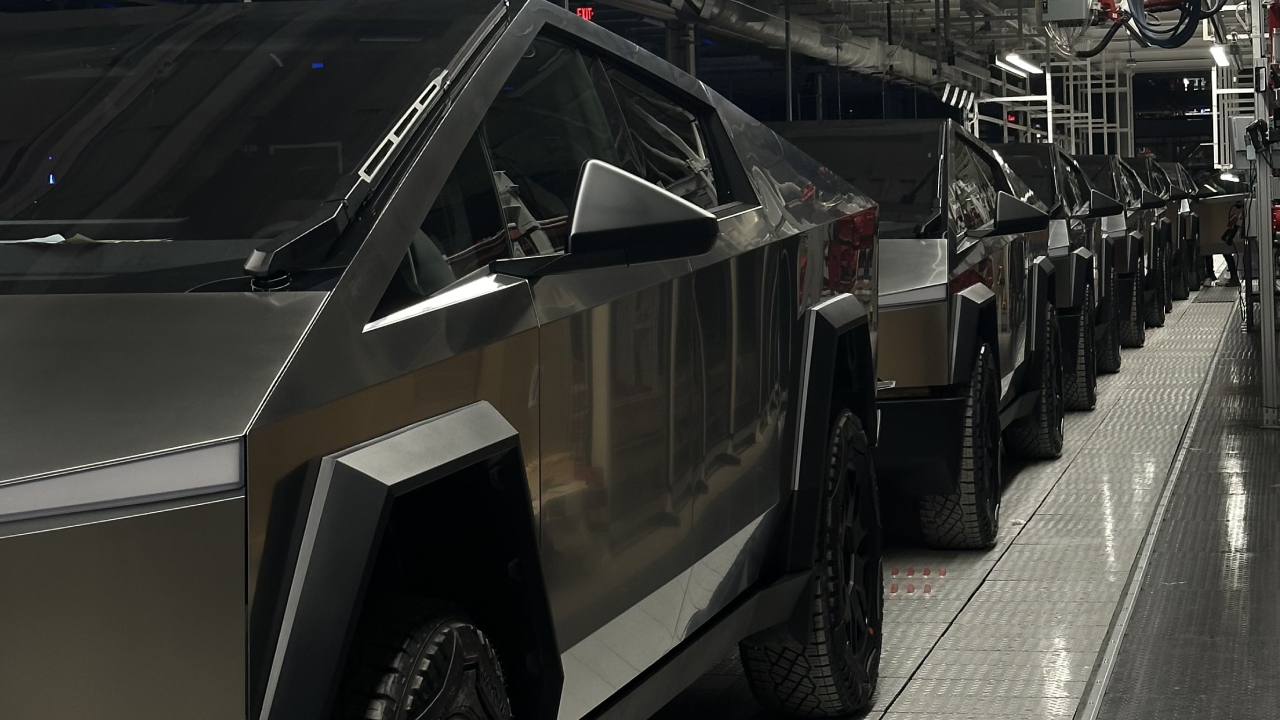- The South African government is preparing to roll out new tax incentives for manufacturers to build and sell electric vehicles locally.
- One of which is a 150 percent tax break for factory investments, at least for the first year.
- There is a swelling interest around young South Africans to buy electric vehicles, but many have concerns around the cost and the charging aspect.
South Africa has some lofty aspirations for electric vehicles (EVs). According to the government’s November 2023 white paper on EV adoption in the country, there are a set of propositions to make EVs a substantial portion of the country’s motor vehicle industry. Currently, these vehicles make up a tiny proportion, with a likewise minuscule number of public charging stations available across the country.
However, during his 2024 budget speech earlier this week, Finance Minister Enoch Godongwana outlined new policies aimed at promoting the growth of South Africa’s EV industry. The most important of these policies is the rolling out of a tax break for companies looking to import their EVs and related products.
The Finance Minister revealed that government had set aside R964 million “over the medium term” to support the country’s gradual transition to EVs.
“To encourage the production of electric vehicles in South Africa, government will introduce an investment allowance for new investments, beginning 1 March 2026,” Godongwana said.
“This will allow producers to claim 150 per cent of qualifying investment spending on electric and hydrogen-powered vehicles in the first year. The incentive will be implemented in addition to the existing support under the Automotive Production Development Programme.”
This 150 percent tax break for factory investments is in addition to other incentives, like lowering import tariffs on batteries used by EVs, among others. These measures go towards lowering the cost for companies like Mecedes-Benz to manufacture and sell their EVs locally.
Volvo does not have any local manufacturing plants even though it is planning to import its EX30 all-electric SUV in South Africa. It is hoping that the particular vehicle’s more affordable nature compared to other EVs available locally will make it more accessible and thus more appealing to local customers.
The announcement that a global player like Volvo will begin making EVs locally thanks to tax incentives will be a major win for government.
Car manufacturing plants are massive facilities that aside from being major capital investments will hire substantial amounts of local workers. For example, the Tshwane Special Economic Zone where Ford manufactures its Ranger bakkies is estimated to create over 10 000 employment opportunities for people living in nearby areas.
The other major concern that customers could have before purchasing an EV locally, is the charging aspect. In our review for the Jaguar I-PACE, we remarked how buying the car would mark a lifestyle change for the driver. Travelling outside of Gauteng would mean careful planning, calculating battery life per km and having to drive charging station to charging station.
A significant portion of the vehicle mix being electric also has implications for the country’s energy utility, Eskom, which struggles to meet the current energy demand. More charging stations across the country mean more MWs drained from the energy grid and thus higher demand.
Despite constant assertions from government that loadshedding will soon be a thing of the past, we remain skeptical due to Eskom’s complete inability to maintain a stable power grid. Even when demand is low, its ailing fleet of power plants can still falter at a moment’s notice.
What happens if your EV is hitting its last bar and when you get to the charging station you discover that you now must wait four hours for the Stage 6 loadshedding timeslot to pass?
And yet according to a survey from AutoTrader, young people in South Africa between the ages of 24 and 35 are showing increased interest in purchasing an EV over a fossil fuel-powered vehicle. Around 26 percent of those surveyed in that age group said they were inclined to buy an EV in the next five years.
The main allure to EVs being reduced carbon emissions, reduced air pollution, and cheaper running costs, while the main drawbacks being the price of EVs, the charging time, lack of charging infrastructure and impact of loadshedding.
South Africa still has a far way to go until the government’s dreams of 2035 come to fruition, or even close. But with consistent news streaming though about plans to launch EVs locally from some of the world’s largest manufacturers, government-sponsored incentives, and interest from a young customer base, it’s hard not to feel that this future may be a possibility.
[Image – Elon Musk on X]

